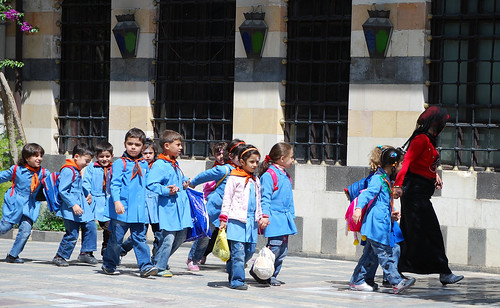The Syrian Civil War has displaced more than two million refugees, putting an immense burden on the infrastructure—educational and otherwise—of many of its neighbors. A new UNICEF report, issued on 13 December, 2013, describes the impact of the civil war on children as well as education within Syria itself.

UNICEF reports that since 2011 almost three million children from Syria have had to quit school as their families have been displaced or their schools destroyed. There are now nearly twice as many children in Syria aged 5 to 17 years old out of school as there are attending, and the numbers are hardly better for the displaced refugee population. 80 per cent of school-age Syrian children are out of school in Lebanon, 66 per cent in Iraq, 63 per cent in Turkey.
The civil war has destroyed what was a successful public school system in Syria. “Before the crisis began in March 2011, Syria could point to a healthy record in basic education. An estimated 97 per cent of primary-age children were attending school, as were 67 per cent of secondary-age children,” the report said. Syria’s literacy rate also surpassed the regional average and was on a par with Turkey, Lebanon and Jordan, higher than Egypt’s or Iraq’s.
The report concludes with four key recommendations:
- Long-term planning for the education of displaced Syrian children, including the “development and implementation of innovative education policies and models that reflect the presence of Syrian children as an enduring reality.”
- Host countries must be supported and international investment doubled—international appeals for funding have reached only 62 per cent of their goal this year.
- Scale up success and innovation. Certain programs like transferable certification for Syrian refugees, and volunteer instruction in Arabic have proven effective ways to help displaced students resume their education.
- End the devastation of Syria’s education infrastructure — “an estimated 4,000 schools have been destroyed, damaged or turned into shelters for displaced people,” says the report.
Creative Commons Love: Alessandra Kocman on Flickr.com
Written by Alex Leedom
